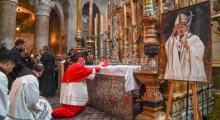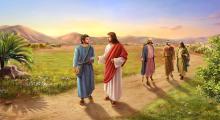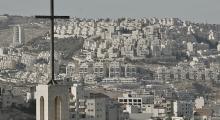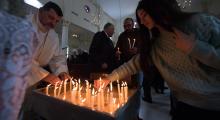Issued by the Catholic Center for Studies and Media - Jordan. Editor-in-chief Fr. Rif'at Bader - موقع أبونا abouna.org
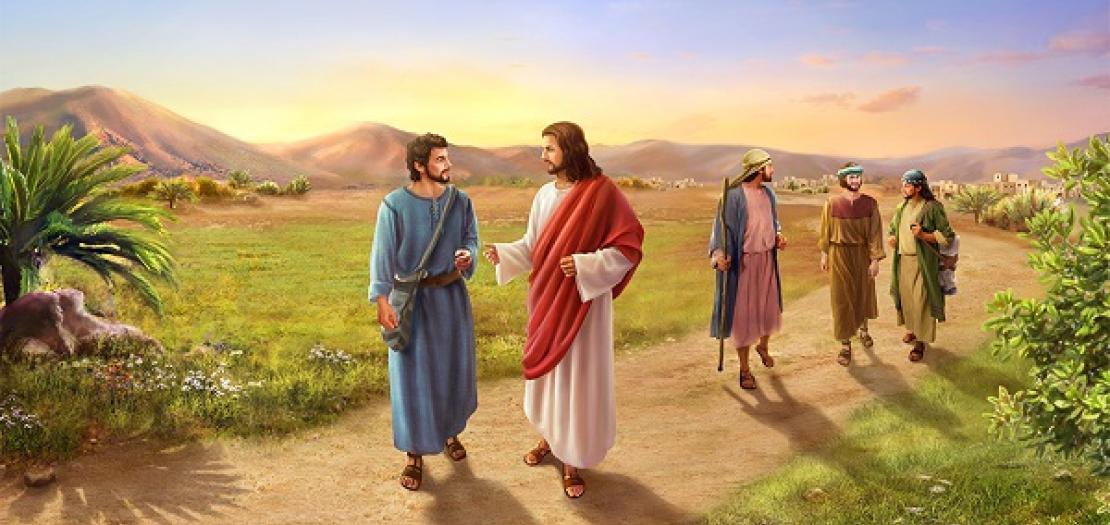
Following is the text of the meditation for the third Sunday of Easter by His Beatitude Cardinal Pierbattiata Pizzaballa, Latin Patriarch of Jerusalem, dated May 4, 2025:
Today's Gospel passage (John 21:1-19) tells us about the last appearance of the Risen One to the community of disciples reported in John's Gospel.
Of this very rich passage, we pause on a few details.
The first is the opening verse of the passage. (John 21:1) where the evangelist writes that Jesus manifested himself again to his disciples (“At that time, Jesus revealed himself again to his disciples at the Sea of Tiberias.”).
The terms we find here take us back to chapter two of the Gospel, where Jesus performs the first of his signs. (John 2:1-11)
There too we are in Galilee, precisely at Cana, and there too, the context is a banquet, just like the one we see unfolding on the shores of the Lake. There, too, in Cana, there is a lack of wine, just as here, on the shores of the Lake, there is a lack of food. Over there, the servants obey the word of a stranger who asks them to fill the jars with water, here the disciples obey the word of a stranger who asks them to cast their nets from the right side. There, no one knows where the wine comes from, here no one knows where the bread comes from. At Cana, Jesus manifests his glory, just as here Jesus manifests himself again. There it was on the third day, here it is the third manifestation. There is an obvious connection between the two passages.
At Cana Jesus began to manifest his glory. Not his power, but his glory, that is, the power of his love capable of overcoming evil. He presented himself as the Messianic Bridegroom, offering the banquet participants the new wine of the new covenant, thereby beginning his hour, which, however, was yet to be fulfilled, in a mysterious way, further on.
Well, all this was fulfilled in a definitive way after Passover. The time of the new covenant has now truly come, and the Lord, having returned victorious from his battle with death, offers his own the banquet of victory.
And there is a sign in this passage today that confirms that the new covenant is truly fulfilled: Jesus asks Peter three times if he loves him. (John 21:15,16,17)
Well, there are many possible interpretations of this threefold question.
But in the mentality of the time, if three times you make the same gesture, it becomes a custom, and if three times you answer yes to the same question, it becomes a contract, something definitive from which there is no going back. It becomes a covenant.
Peter, he who denied, he who fled, is called to say yes three times, to say that he believes in this new possibility of being, together with his brothers, a community reborn from death.
It is a small, wounded community, which alone can do nothing (“but that night they caught nothing”, (John 21:3) going through the darkness of the night. But it is also a community that, when it obeys the Word of the Lord, becomes strong: the nets do not break, (John 21:11) because it is solid, this new community that is founded on the gift of the Lord ("So Simon Peter went over and dragged the net ashore full of one hundred fifty-three large fish. Even though there were so many, the net was not torn."(John 21:11)
And that the gift is the Lord's, is evident: the disciples return to shore after having caught a great quantity of fish, but it is Jesus who offers the fish and the bread, (John 21:9) and this refers back to the self-offering that Jesus made on the cross: this is the true strength of the new community of disciples.
In addition, they cast the net on the right side of the boat (“Cast the net on the right side of the boat and you will find something”(John 21:6): here too the meanings can be many, but what is certain is that the right side is the side of God, of his powerful arm, the side of strength, of blessing, of joy.
The disciples are called to live there, in this place where God manifests his strength, which is always the strength of love, never of mere power.
What they have caught, they bring to the Lord, who unites it with what is already ready on the fire. (John 21:10)
The Lord has already done everything, and now, what is lacking is to unite ourselves to Him, making His logic of life, His unconditional trust in the Father, His filial obedience our own.
From there life is reborn, and from there the Church is reborn.
+ Pierbattista


